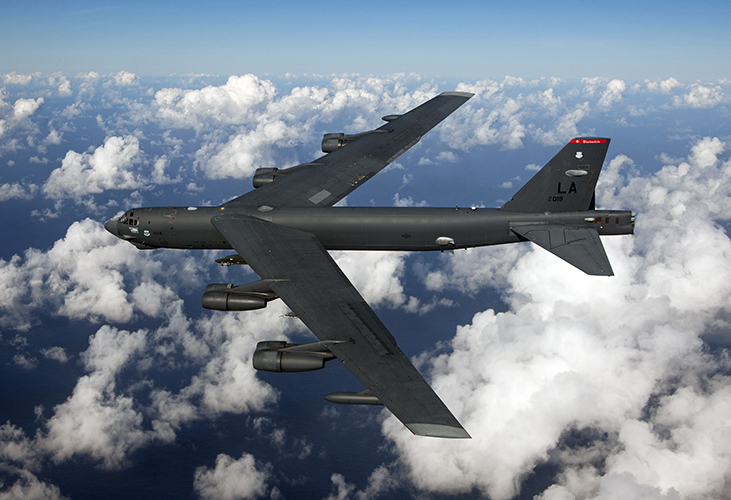
A Boeing B-52 Stratofortress bomber, one of the platforms that will receive the weapon platform software update. (Boeing)
Boeing has won an indefinite-delivery/indefinite-quantity U.S. Air Force contract worth up to $259 million to provide weapon planning software for a host of U.S. military and allied platforms over the next decade.
The weapon planning software is part of Boeing Global Services subsidiary Tapestry Solutions’ joint mission planning systems package, which is designed to help military customers plan routes threats and points for weapon launches through data sharing. Under the Air Force contract, Tapestry will be responsible for the development, enhancement and support of the software suite, which provides precision-guided munition planning for the F-35, F-22, F/A-18, F-16, F-15E, B-1, B-2 and A-10.
“We are looking forward on building on our partnership with the U.S. Air Force as we help to fulfill their mission planning needs with the [weapon planning software] suite,” said Debbie Churchill, Tapestry Solutions vice president for mission products and services. “It will ensure our customers have the critical data they need to get from mission plan to execution more efficiently with the use of faster, more powerful and intuitive weapons planning capabilities.”
Over the course of the ten-year contract, multiple versions of the software will be worked concurrently, according to a Tapestry representative, providing a regular cadence of maintenance releases. While the Air Force is the customer, efforts align with additional support for the U.S. Navy, foreign military sales and potential future requirements to support drones.
“Our modern development approaches will ultimately aid in a faster release velocity for the U.S. military,” said Jeff Mintzlaff, Tapestry’s director of mission planning. “This will provide greater flexibility to integrate new weapons, platforms and emerging enabling technologies for the WPS program.” Mintzlaff also said that the agile nature of the development process would “significantly reduce costs” for the Defense Department.
Work has already begun, taking place primarily in Niceville, Florida and St. Louis, with an anticipated February 2029 end date. Team members for the deal include Dynamic Software Solutions, Monterey Technologies and E-quality.